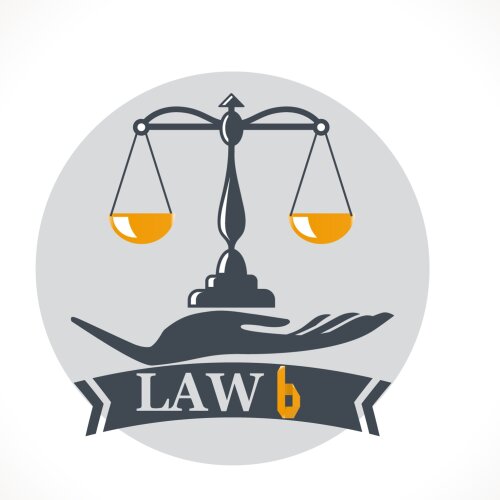Best Consumer Protection Lawyers in Pakistan
Share your needs with us, get contacted by law firms.
Free. Takes 2 min.
Or refine your search by selecting a city:
List of the best lawyers in Pakistan
About Consumer Protection Law in Pakistan
Consumer protection is an essential part of ensuring that consumers receive their monetary value when purchasing goods and services. In Pakistan, consumer protection law is governed primarily by a framework that seeks to safeguard consumers against unfair trade practices and defective products. The main legislation includes provincial consumer protection acts, such as the Punjab Consumer Protection Act 2005, the Sindh Consumer Protection Ordinance 2007, and similar acts in other provinces. These laws establish mechanisms for consumers to seek redressal through consumer courts and provide for the establishment of consumer protection councils to promote consumer rights.
Why You May Need a Lawyer
There are several situations where you might require legal assistance related to consumer protection:
- When a purchased product is defective, and the seller refuses to provide a refund or replacement.
- If you encounter false advertising or misleading sales tactics.
- When you face negligence while availing services, resulting in loss or damage.
- To navigate legal procedures when approaching consumer courts for redressal.
- If your rights as a consumer under provincial laws are violated, having a lawyer can help negotiate settlements or file complaints.
Local Laws Overview
Several key aspects of local laws are particularly relevant to consumer protection in Pakistan:
- Consumer Rights: These include the right to safety, information, choice, and redressal, ensuring quality goods and services.
- Consumer Courts: Established to provide a platform for resolving consumer grievances, particularly concerning defective goods and services.
- Warranties and Guarantees: Laws provide specifications regarding product warranties and guarantees that protect consumer investments.
- Prohibited Practices: Laws prohibit misleading advertisements, unfair trade practices, and defective product supplies.
- Redress Mechanisms: Consumers can file complaints against service providers or sellers and seek compensation for losses incurred.
Frequently Asked Questions
1. What is consumer protection?
Consumer protection involves laws and regulations that protect the interests of consumers against unfair business practices, ensuring they receive high-quality products and services.
2. Who is considered a 'consumer' under these laws?
A consumer is typically any person who purchases goods or services for personal use from a seller in exchange for payment.
3. What can I do if I receive a defective product?
You can contact the seller to request a repair, replacement, or refund. If the seller does not comply, you can file a complaint with the consumer court.
4. Can I sue for false advertising?
Yes, you can take legal action against businesses that provide false or misleading information about their products or services.
5. How do consumer courts work?
Consumer courts are set up to handle disputes specifically related to consumer issues. They have simplified procedures to enable consumers to file complaints and receive redress.
6. Is there a cost involved in filing a complaint?
While there's usually a nominal fee for filing a complaint, it is significantly lower compared to regular courts to ensure accessibility for consumers.
7. What are consumer councils?
Consumer councils are bodies set up under provincial acts to promote awareness regarding consumer rights and responsibilities and to advocate for policy changes.
8. Can I represent myself in a consumer court?
Yes, the procedures are designed to be user-friendly, so consumers have the option to represent themselves, although having a lawyer might be beneficial.
9. Are online purchases covered under these laws?
Yes, online transactions for goods and services also fall under the ambit of consumer protection laws.
10. How long do cases usually take in consumer courts?
While consumer courts are intended to provide swift justice compared to traditional courts, the time taken can vary based on case complexity and backlog.
Additional Resources
For more assistance, you may consider reaching out to the following resources:
- Provincial Consumer Protection Departments: They provide guidance on filing complaints and pursuing cases.
- Consumer Rights Commissions: These bodies work towards enhancing consumer rights awareness and advocacy.
- Legal Aid Services: Non-profits and government bodies often offer free legal advice and support for consumer issues.
Next Steps
If you need legal assistance in consumer protection, consider taking the following steps:
- Document all relevant information related to your case, including receipts, warranties, and communication with sellers.
- Consult with a legal professional experienced in consumer protection laws to assess your case and receive tailored advice.
- Prepare to file a complaint with the relevant consumer court if necessary, with your lawyer's assistance.
- Keep informed about your rights as a consumer and leverage available resources and support networks.
Lawzana helps you find the best lawyers and law firms in Pakistan through a curated and pre-screened list of qualified legal professionals. Our platform offers rankings and detailed profiles of attorneys and law firms, allowing you to compare based on practice areas, including Consumer Protection, experience, and client feedback.
Each profile includes a description of the firm's areas of practice, client reviews, team members and partners, year of establishment, spoken languages, office locations, contact information, social media presence, and any published articles or resources. Most firms on our platform speak English and are experienced in both local and international legal matters.
Get a quote from top-rated law firms in Pakistan — quickly, securely, and without unnecessary hassle.
Disclaimer:
The information provided on this page is for general informational purposes only and does not constitute legal advice. While we strive to ensure the accuracy and relevance of the content, legal information may change over time, and interpretations of the law can vary. You should always consult with a qualified legal professional for advice specific to your situation.
We disclaim all liability for actions taken or not taken based on the content of this page. If you believe any information is incorrect or outdated, please contact us, and we will review and update it where appropriate.
Browse consumer protection law firms by city in Pakistan
Refine your search by selecting a city.

















